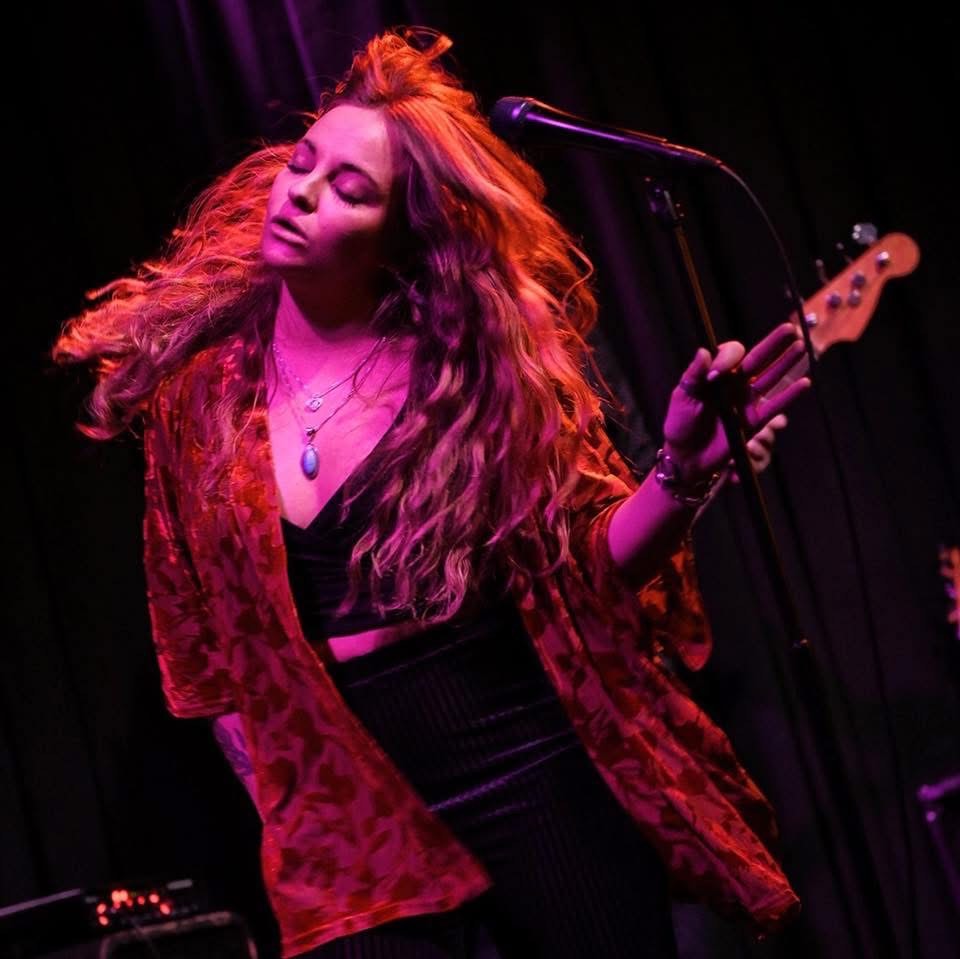We recently connected with Megan Brown and have shared our conversation below.
Hi Megan , thanks for joining us today. We’d love to hear the backstory behind a risk you’ve taken – whether big or small, walk us through what it was like and how it ultimately turned out.
Music itself is not a risk because it’s pure. Deciding to create, perform and share your music is always a deeply personal risk as well as a financial risk, no matter how seasoned you may be. I’ll elaborate on both of those risk types.
I’ve been on stage since I was a small child so creative arts performance has always been a normal life for me. I started acting in stage plays and radio theater plays. I progressed to musicals and then eventually realized in my teens that singing was my true passion and what really made me feel good. I took that realization seriously and I dove in head first.
It’s funny because when I was acting as a kid, I had no stage fright. Not that it was easy but certainly, it felt routine to me, and it was the one place where I didn’t feel shy. When I switched to focusing on singing and I joined my first (non-high school basement) rock band, I felt enormous responsibility to perform the songs and lyrics of my bandmate. Then I started turning my own poems into lyrics and performing those live. Singing these original songs finally showed me what stage fright really was.
Stage fright for me has gone through many evolutions as I continue to sing on stage, but it is always coming from a place of “what if?”. Therein lies the emotional risk that I repeat. To this day, as I write lyrics heavily for my current band, I feel like I’m standing on stage, reading my diary aloud. What if they don’t like what I’m saying? What if they disagree with my beliefs? What if they interpret my words in a negative way? Most of all: What if they just think it’s bad? After all, I’m choosing to write these lyrics and sing them in public as a way of getting out emotions that I have a hard time expressing otherwise. I’m singing them in hopes that I’m helping someone else get out their trapped emotions. I sing to trade that energy with the people that wind up needing to hear it just as much as I need to say it. What if I’m putting my heart out on a chopping block and it’s not helping anyone? Simultaneously, it’s still crucial to keep my emotions in check, so that the technicality of singing and breathing properly doesn’t ruin my message by hitting a bad note. So, “what if” they don’t like my voice or think I sing poorly?
This feeling of risk, manifesting itself as stage fright first started with my kneecaps shaking uncontrollably. In turn, it would make my voice shake. Then, my chest would break out in a red, blotchy rash. Thank God, I got through those physical (and outwardly noticeable) reactions. Stage fright for me now is much more internal, subtle and less frequent. I only feel it now before the bigger shows. “Bigger” could mean a very large crowd. It could mean a very intent, listening audience. It could mean that I feel more responsibility to do a great job for any given reason. Now it comes out of me as being unable to focus on one thing, becoming forgetful, being unable to carry a conversation, feeling sick to my stomach and just needing to be left alone until I get on stage. What’s great now is that all that anxiety melts away once the music starts.
Then I learned about a whole new personal risk in 2020, during the Covid lockdown. I learned how much consistently performing live really meant to me. Not being able to do it for an extended period of time when you’ve grown used to playing 1-3 shows a week really impacted me. I felt a depression sink in and I struggled even more with expressing myself and releasing emotions. I realized how emotionally dependent I was on playing shows. All these risks have the potential to crush me, completely. Luckily, the old saying of “No risk, no reward” holds true because I’ve become successful in my field. In this scenario, success means that people do want to hear me, and they still give me the opportunity to be heard.
Then, you have the risk that comes from creating, producing, recording and releasing your own music. The “time and money” risk. This is where it is really a business and a career, not just art. I don’t think the general public really understands the amount of time, money, effort and sacrifices musicians make when they endeavor to put out a quality recording.
My band, Grosh, recently released our third full length album. While our other albums had all of the same obligations, everything in this last album was magnified. We got hooked up with a producer for the first time, Tim Lefebvre, who is a world-renowned bass player and has producer credit on a Grammy nominated album. Instead of recording in our hometown of Buffalo, New York, we flew out to Tim’s studio of choice: the famed Sonic Ranch in Tornillo, Texas. We mixed and mastered with sought after names. We put out professional grade music videos. We pressed vinyl for the first time. We played our release party to a huge crown in one of Buffalo’s premier venues, our streams are higher than they’ve ever been, we’re being added to Spotify playlists, and we’re being played on European radio shows. All of this and we are still just an independent, DIY band. I don’t know the exact numbers, but all of this took a year and a half and well over $10,000. If you look at it on a broad scale, this took the better part of our lives to get to and some incalculable number from our wallets. Monetarily, our band consists of members who play music full-time, or like me, treat music as their second job/income. We all took pay cuts for over a year to make this happen. We risk all of this time and money for the hope that we get pulled up another rung or two on the ladder and get closer to our dream of being able to play and tour full time in the most challenging economy and music climate in our lifetime. I can honestly say now that if I turned my head and looked down the proverbial ladder, I wouldn’t be able to see the bottom. If I turned to look up, I also wouldn’t see the end and I hope I never do. What then?
To close this out I’ll answer something that I ask myself all the time: Would I trade any of these risks for a softer, safer, more normal life? Never in a million years, even if a fortune teller told me this is as far as I’m going to go.
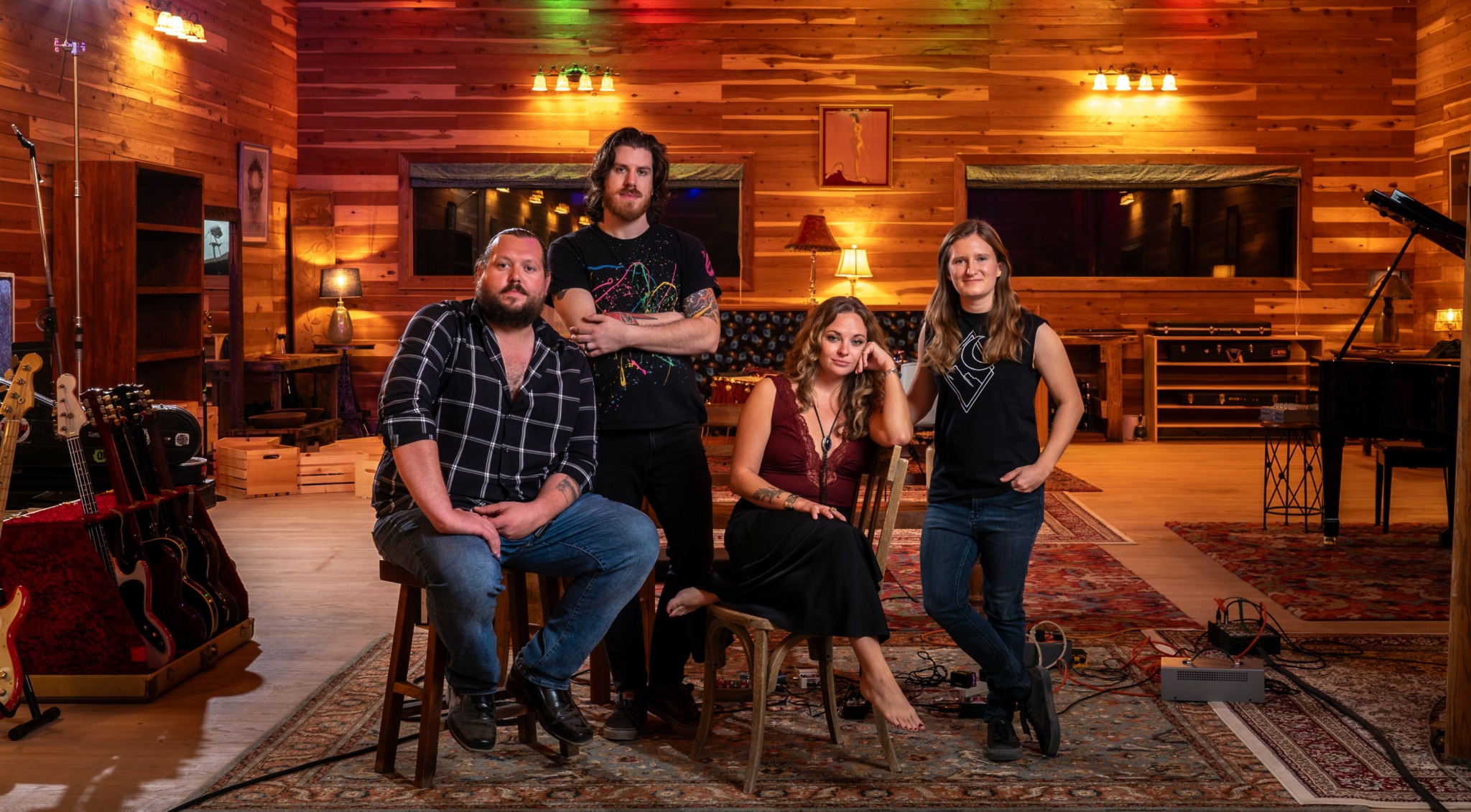
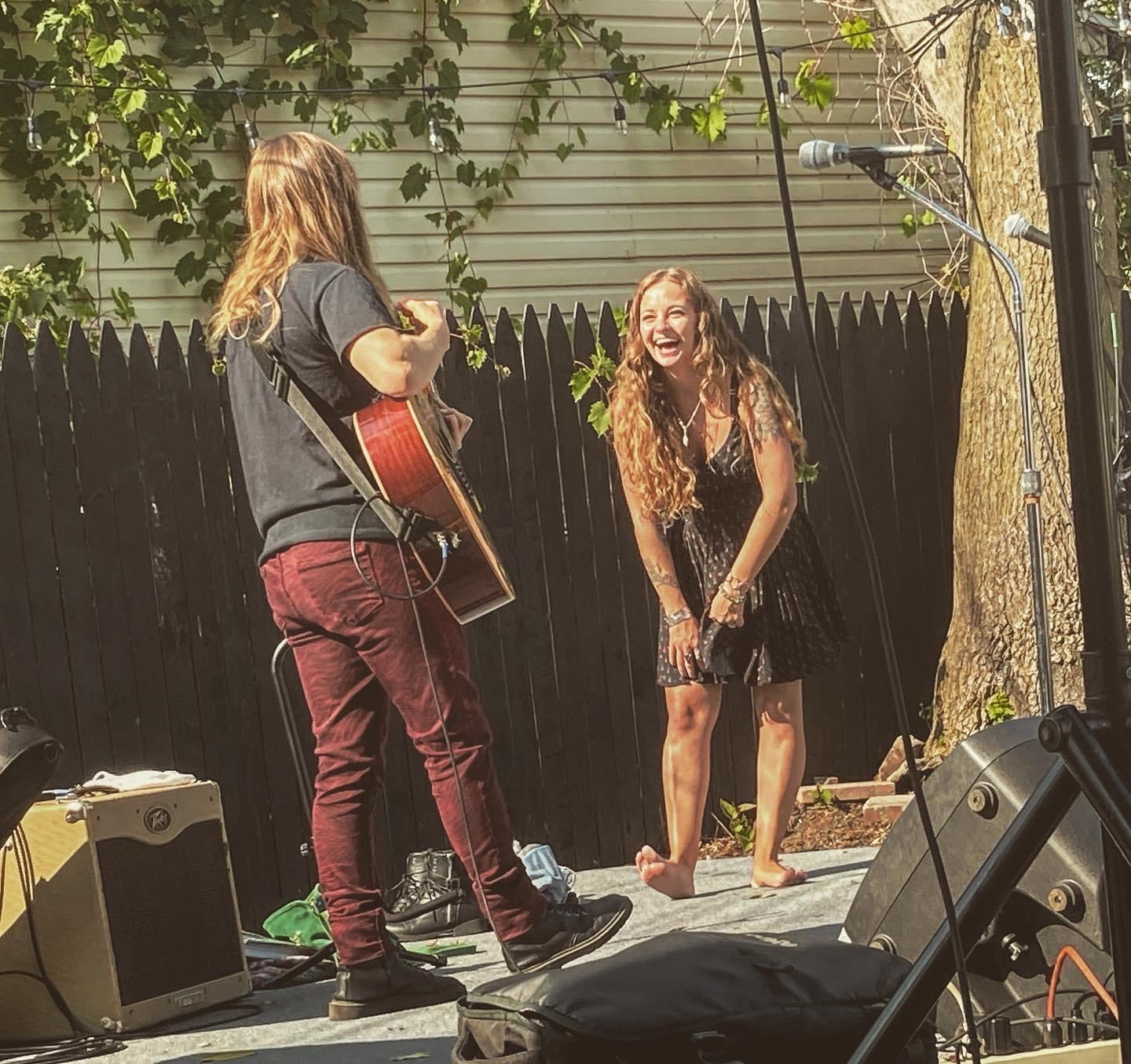
Great, appreciate you sharing that with us. Before we ask you to share more of your insights, can you take a moment to introduce yourself and how you got to where you are today to our readers.
My music career under no uncertain terms first started with my father who was/is a singer, actor, playwright and radio DJ. So, if I had any natural talent at all, I was bound to start utilizing it as my dad did. As soon as he could tell that I had actual ability, he really started to coach me. First in acting, then in singing. He would also cast me in his plays, we would sing duets together at church and then I would almost categorize him as managing me when I was a teenager, by way of being a booking contact for me. He would book me to open for Christian music acts in churches, concerts, etc. He was a DJ at a Christian radio station, so he was well respected and plugged into that community.
Then came an extremely difficult phase in my life. At 17, my family and I had been living in Buffalo, New York for 3-4 years. (We moved to Buffalo from Dallas, Texas) Such a short time after that life changing move, my parents divorced. My mom and my little sister moved back to Texas. My big sister first moved in with a friend in Buffalo and a short time after, she also moved back to Texas. It was just me and my dad. Then at 18, weeks after graduating high school, my dad moved back to Texas. He expected that I would be coming with him of course. I’m not sure how I had so much confidence to say “No, this is where I need to be, I’m staying.”, but to this day, it is the best decision I ever made. From then on, it was up to me to make this music thing work and I knew that I wanted to sing in a rock band.
18 years old, I’m working full time, found a roommate so that I could stay in the apartment I had lived in with my dad, and started going to open mics with my best friend; her on guitar and me singing. We learned a small handful of covers and we wrote one original together. Going to those open mics resulted in me meeting Gus Walters, my first bandmate. We formed the band Dirty Smile and I met more amazing musicians as we found bandmates and at times, changed out bandmates. Gus really taught me how to hone in on lyric and melody writing.
Dirty Smile stayed in the basement, writing and practicing for almost a year before we finally went out to an open mic. I must have been freshly 22 by that time and once again, pure confidence made me go up to the bartender after our turn on stage and say “Let me book a gig here.” A few years later, we were one of the top bands in the region. Gaining that notoriety led to me joining a second band, Whiskey Reverb, who was definitely THE top band in our region at the time. I got to travel and tour with that band, which is how I learned that I loved living out of a suitcase. To recap, at this point, I am now living alone in my own apartment, working full time and playing in two busy and successful bands. Sleep was very low on the priority list.
For reasons out of my own control, both of those bands broke up, about a year apart from one another. That was a very emotional time for me. I would have been happy to sing in Dirty Smile forever. I felt like I was no good at writing without Gus. For the first time in my life, I wasn’t sure what to do next or if I should even keep going. Then came the band, Grosh.
Grosh started out as a two-piece band: one guitar player and one drummer. Not just any guitar player and drummer but two of the absolute best and most coveted players around. I was obsessed with their heavy sound, loved their originals and so I went to a lot of their shows. One day, they asked me to come up and sing one cover song with them. That was a huge fan girl moment for me, but I also saw the opportunity presented. So I kept showing up to their gigs and they kept asking me to come up and sing that one song. Again, the confidence kicked in here. I knew they were thinking about asking me to join the band like a shark smells blood in the water. So I kept showing up to their gigs and I made sure to stick around afterward to talk to them. Seven years and three albums later, I once again find myself in one of the top bands in the region and they are also some of my best friends. I learned (to my relief) that I was a good writer on my own and an even better writer with them. We travel, we grow our following, we write great songs and we play everywhere from dirty little dive bars to big stages to weddings and everything in between.
When I doing this at a very young age, sleep was a low priority, as I’ve said. I’m still putting in the same amount of hours that I always have but as I get older, I know how important sleep is for vocal health. So what gets sacrificed between a full time band and a full time job is sometimes my social life. What’s more important to me than any party is drinking 100 ounces of water every day, getting enough sleep, knowing when to not have that celebratory cocktail and knowing when to go home. Of course, I am in a rock band so I also know when I can afford to party!
I have a lot of pride in how I started out and how I have supported myself to build a career with longevity. What do I want others who are starting out to know? Go to the open mics, get to know your favorite local musicians, and support other local musicians, put your health above everything so that you can keep going. Above all else, have confidence.
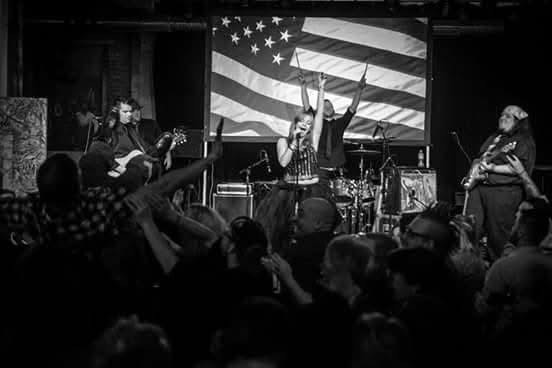
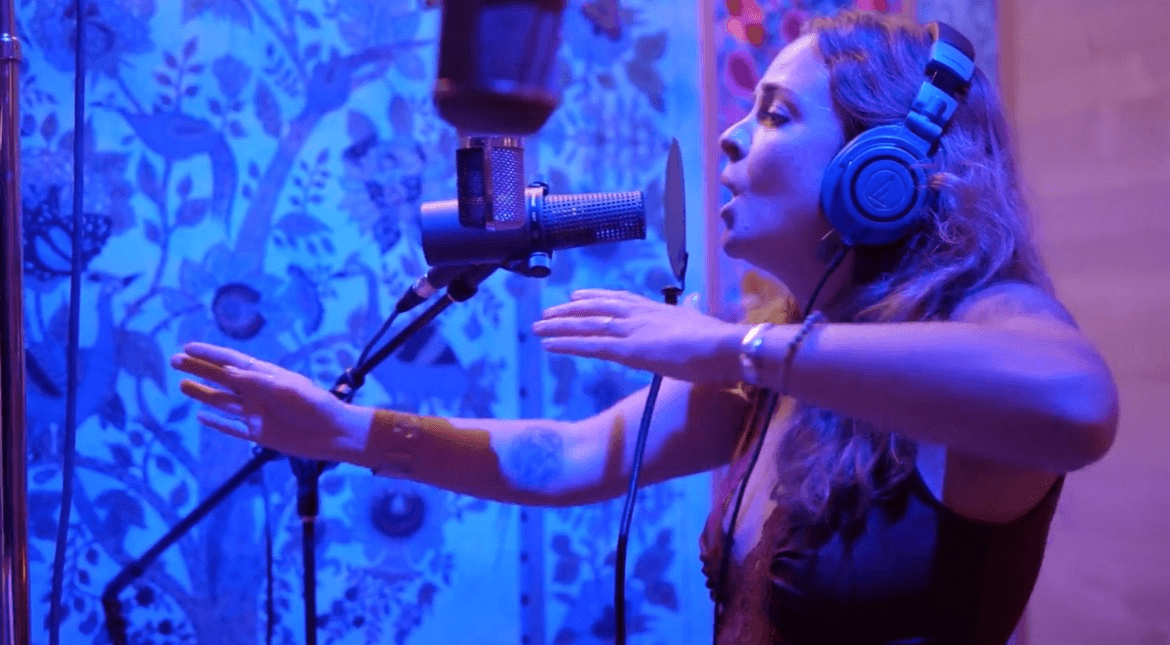
We’d love to hear about how you met your business partner.
I met Grace Lougen and Josh English (founders of Grosh) through our music community. We were in separate bands, but we often found ourselves on the same bill or going to check out the same shows. I got to sing with each of them in one-off scenarios like a specialty show or one of them filling in for a band mate of mine. I would say we were friendly acquaintances, and I admired them a lot. I think they admired me too. I’d known them at that level for years before I was in band with them. Getting close to them and working with them has been nothing short of the joy of my life ever since.
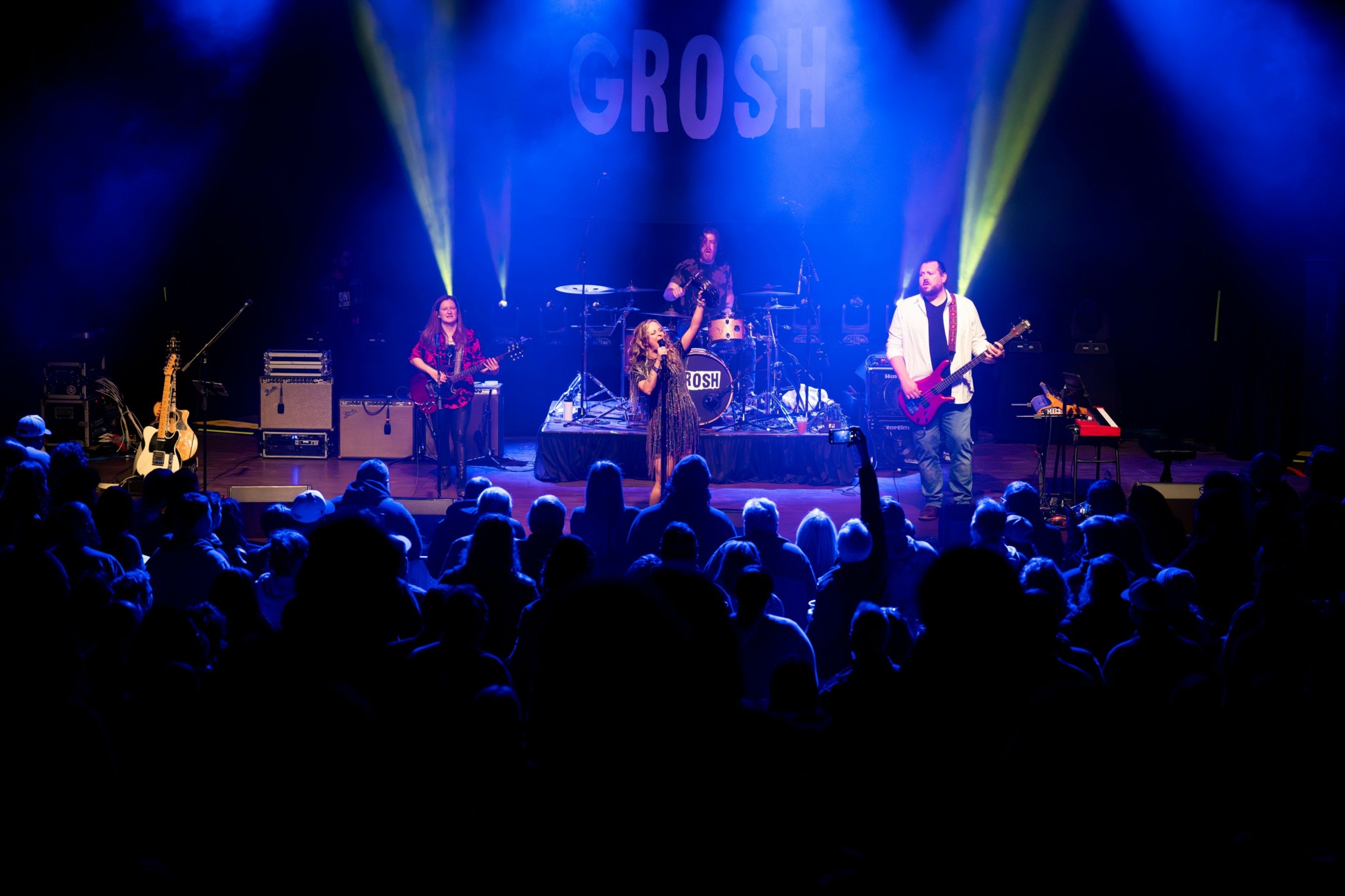
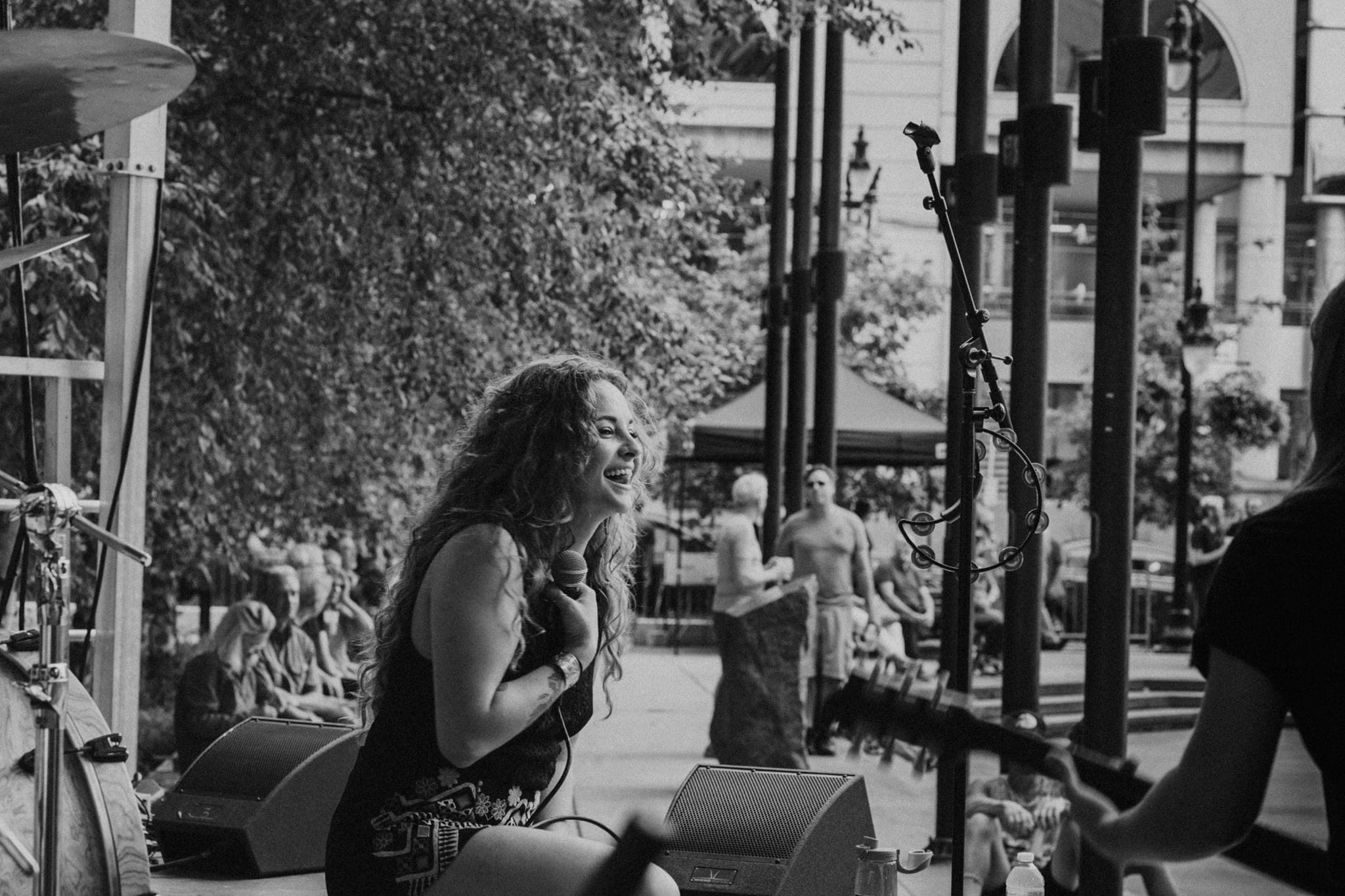
What do you find most rewarding about being a creative?
The most rewarding aspect of being an artist is that trade of energy. I get on stage, and I push my emotions and energy out to the crowd as I perform. I watch them and gauge what it is that they need from me. In return, I engage their emotions and energy and whether they know it or not, they are sending it back to me on stage and we are evolving together for one to three hours while I sing to them. There is nothing else in the world like it and I’m so grateful to be able to co-create that with my bandmates and the audience. It is my lifeline.
Contact Info:
- Website: https://groshband.com/
- Instagram: https://www.instagram.com/grosh_band?igsh=YWdyaGk4aGF3bmow&utm_source=qr
- Facebook: https://www.facebook.com/share/1AN4VN2o5x/?mibextid=wwXIfr
- Youtube: https://youtube.com/@groshband?si=ORbG34qQV9g6xJLN
- Other: Spotify:
Apple Music:
https://music.apple.com/us/artist/grosh/1467221359
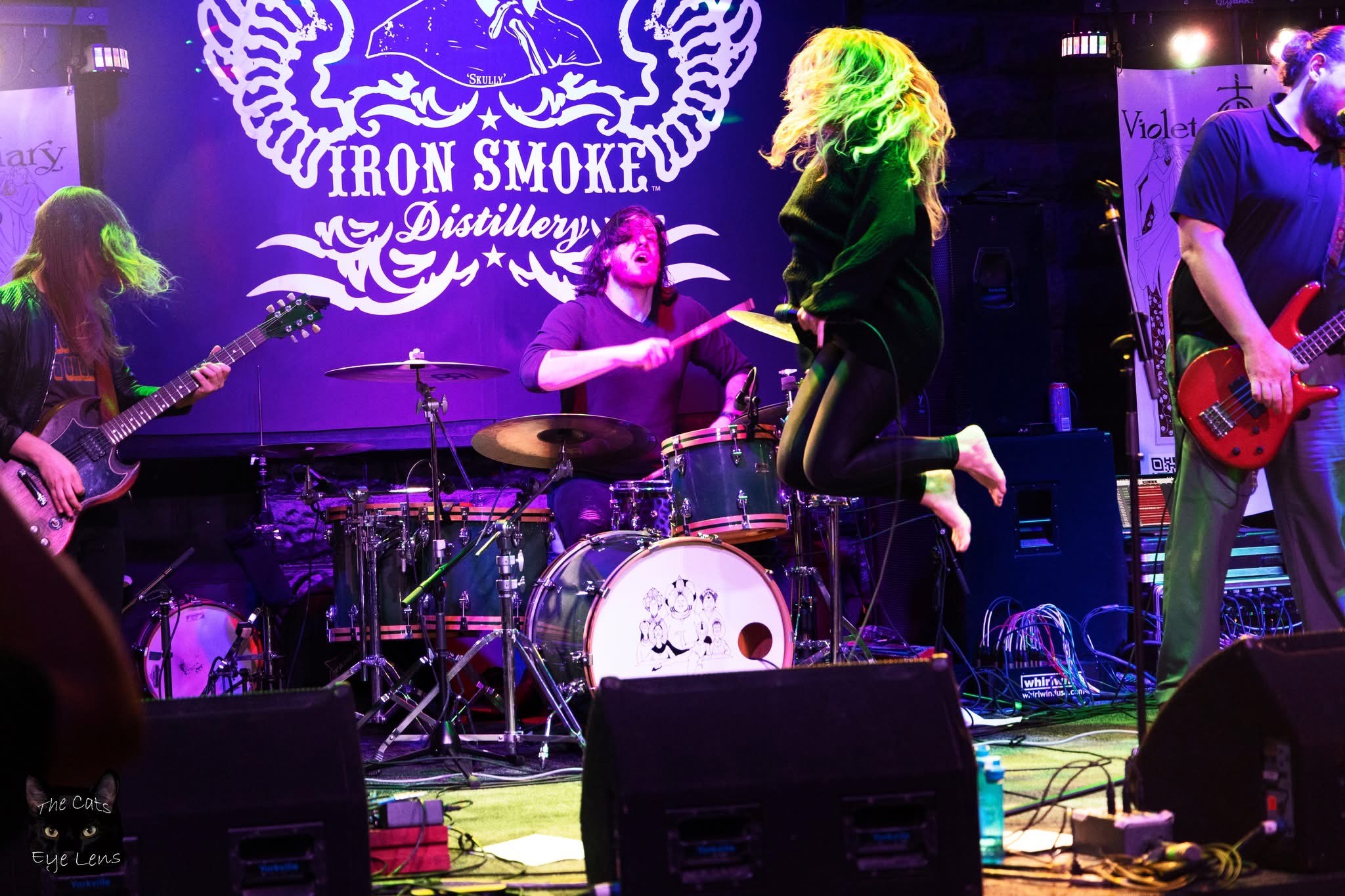
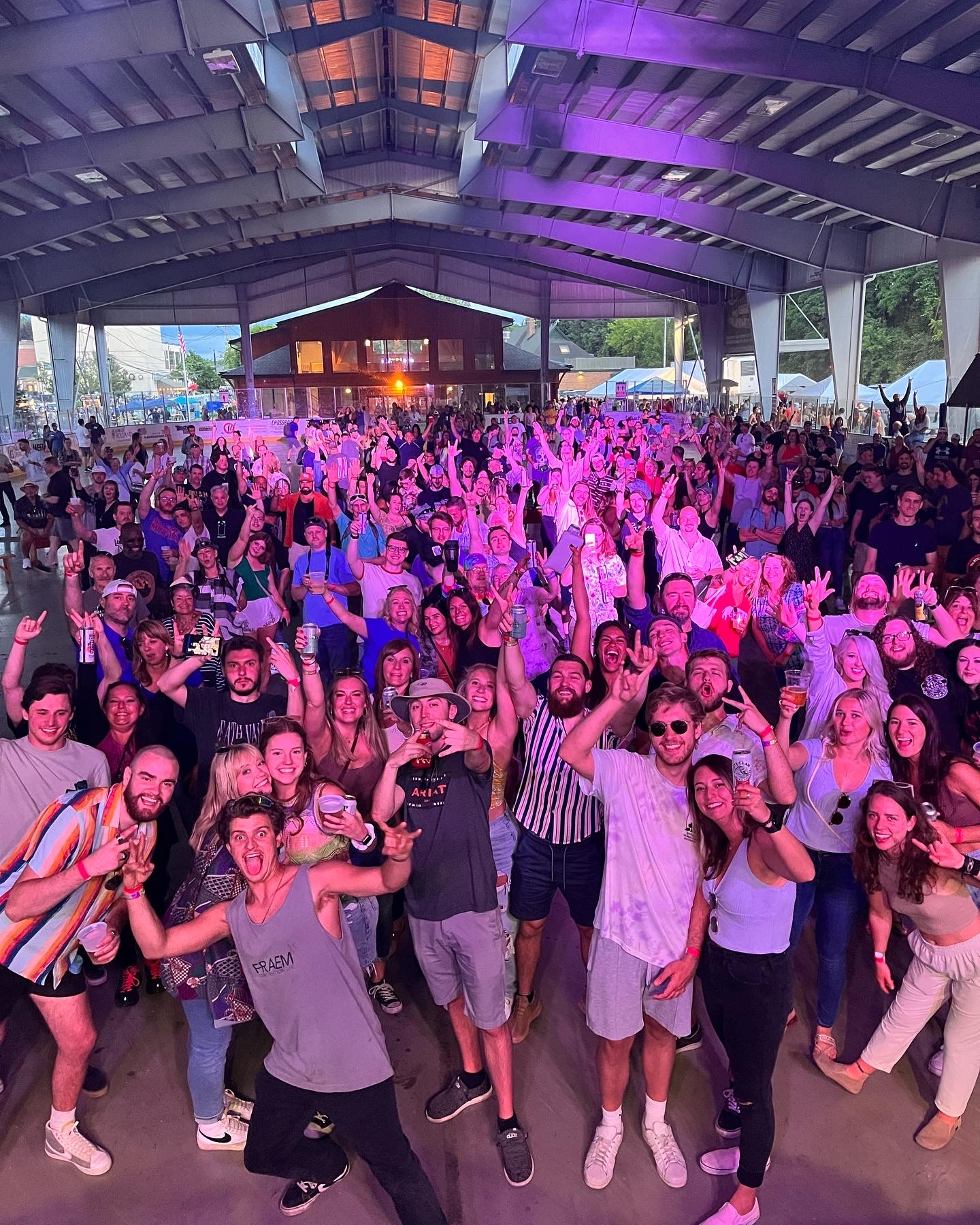
Image Credits
Photo 1: Grosh at Sonic Ranch Studios, 2023-Photo Credit: Alan Esparza
Photo 2: Summertime acoustic gig, 2020-Photo Credit: Kevin Sampson
Photo 3: Dirty Smile playing our album releases show, 2017-Photo Credit: Mike Sansano
Photo 4: Me in the vocal booth at Sonic Ranch Studios, 2023-Photo Credit: Alan Esparza
Photo 5: Grosh playing our album release show, 2025-Photo Credit: Michael Lee Jackson
Photo 6: In my bliss, 2023-Photo Credit: Mouwphoto
Photo 7: Jump shot with Grosh, 2024: Photo Credit: The Cat’s Eye Lens
Photo 8: One of my favorite crowds I’ve ever played for. East Aurora Music Fest, 2021. Photo by me.


